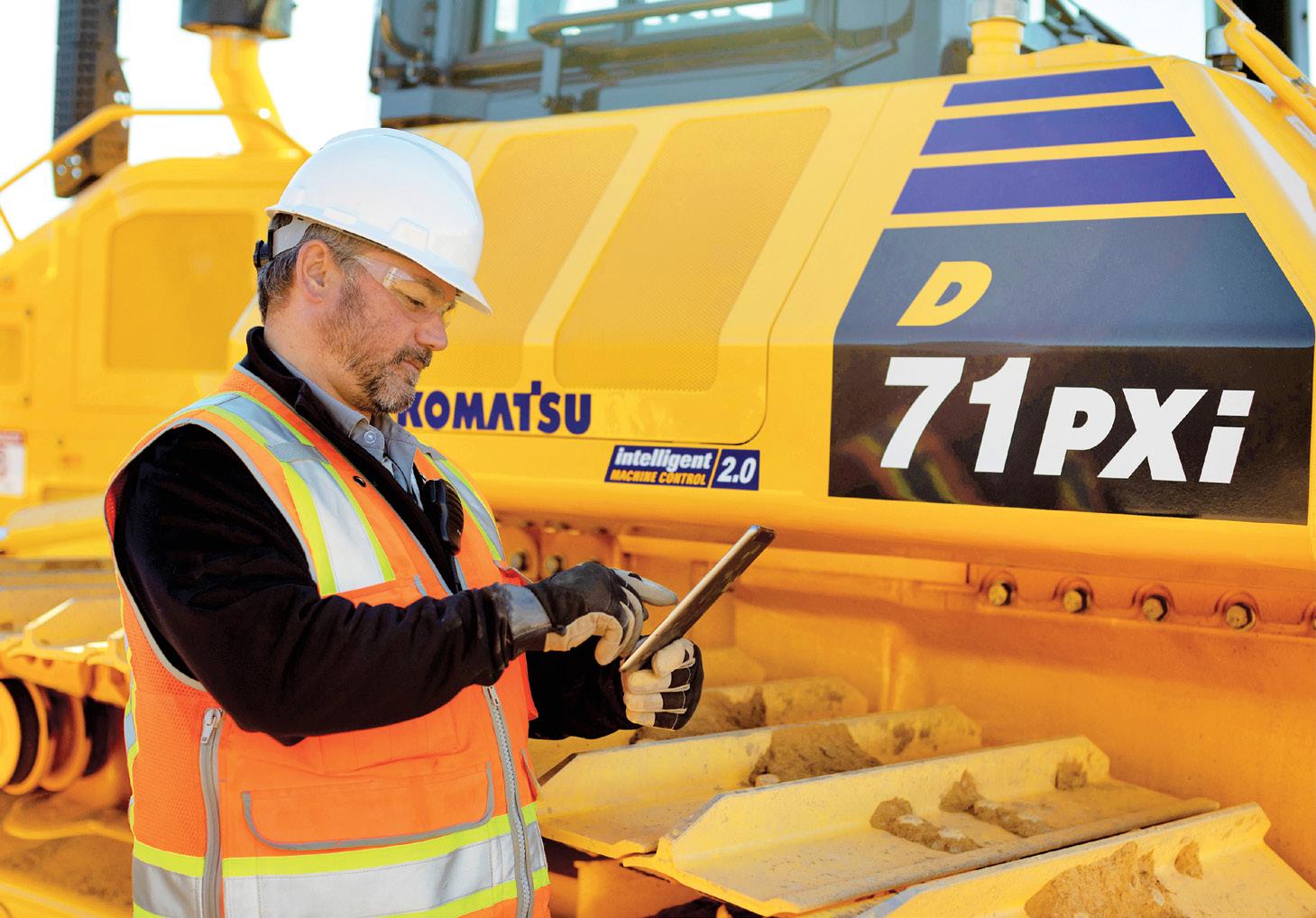
3 minute read
Productivity Preparation
Your busiest time of the year is near. Make sure equipment and personnel are ready for maximum production
DDuring the winter months, your machinery may have sat for a long period of time, or you may have kept working and just had routine services done during that time. Either way, it is vital to take steps to ensure your equipment is ready for the busy summer days that lie ahead.
Don’t wait
If you have any outstanding work orders or operator repair tickets, finish them as soon as possible. Thoroughly inspect machines a few weeks before the schedule really heats up, and if you find any issues, address them right away. Remember, larger items such as undercarriages take more time to repair, so inspecting them well ahead of time is vital.
Buckets, blades, cutting edges and ground engaging tools such as teeth require attention, too. Make sure there are no cracks, chips or excessive wear that could affect safety and performance; replace if needed. Check that your attachment hoses and connectors are in good working order and ready for hydraulic fluids. Hook them up briefly, and run them to see if they are working properly.
Prepare staff members
Make sure employees are aware of schedules, procedures, emergency protocols, and the dangers and signs of heat-related illnesses. Employees should also know how to report maintenance items, the functions of new machines, and how to use them to maximize production and efficiency. Plus, make sure they have all the necessary personal protective equipment and that it is in good condition.
Thoroughly inspect your machinery before the busy construction season starts to ensure it is ready for maximum performance. Make sure everything is in working order and fluids are at their proper levels. Don’t forget to check technology. Stock up on parts
You should have an easily accessible store of basic maintenance items on hand such as grease, fluids, filters and belts. Having these on hand will save you from making frequent trips to the store, and decrease your overall downtime.
Clean the machine
Have you heard the adage that a clean machine runs better? True or not, you should wash your equipment to remove any dust and/or dirt buildup from storage or from use during the winter months. Cleaning can help you spot potential issues. Remove any debris, including from the engine compartment. Look out for rodent and/or bird nests.
Don’t overlook the inside of the cabs — clean the glass, and dust the consoles and dashes. Replace missing or damaged safety decals.
Charge batteries
If you stored batteries, be sure to check them. Before using them, ensure proper water acid levels and fill, if necessary. Batteries that were not charged during storage should be. Coating battery connections with an anti-corrosion spray can prolong system life. Replace batteries if you believe there is any doubt about their safety or reliability.
Check fluid levels
It is essential to keep fluids at proper levels. Make sure there is an operating and maintenance manual available in your machine year-round, and refer to it for guidance. Be sure to grease any points that require it. As temperatures rise, you should switch to fluids that properly match the ambient temperatures. If the machine requires diesel exhaust fluid, draining it and refilling it with new fluids to maintain purity and concentration is highly recommended, regardless of if you used the machine during

During the busy season, your machinery and personnel work hard, so make sure both are ready ahead of time. Check your equipment’s undercarriage, ground engaging tools, fluids, components and other critical items. Make sure staff members have all necessary personal protective equipment and that it is in good condition.
the cold winter months or not. Switch fuel to a summer blend such as No. 2 diesel, and drain the lines of any condensation.
Pay attention to hoses and filters
If fluids are the lifeblood, hoses are the arteries that carry it. Check them for abrasions and leaks; replace immediately if any are found. Cold can affect filters, so consider replacing them with new ones, including air filtration and air conditioner filters, so operators have a cleaner, more comfortable environment. Dust and contaminants affect filter performance, so keep a close eye on them, and change them as often as necessary.
Don’t overlook technology

Check the connections on your aftermarket GPS systems, as well as those that go with removable monitors. Turn the machine on, and test telematics systems to make sure you can monitor machines through your computer or smart devices. ■










